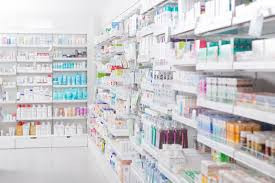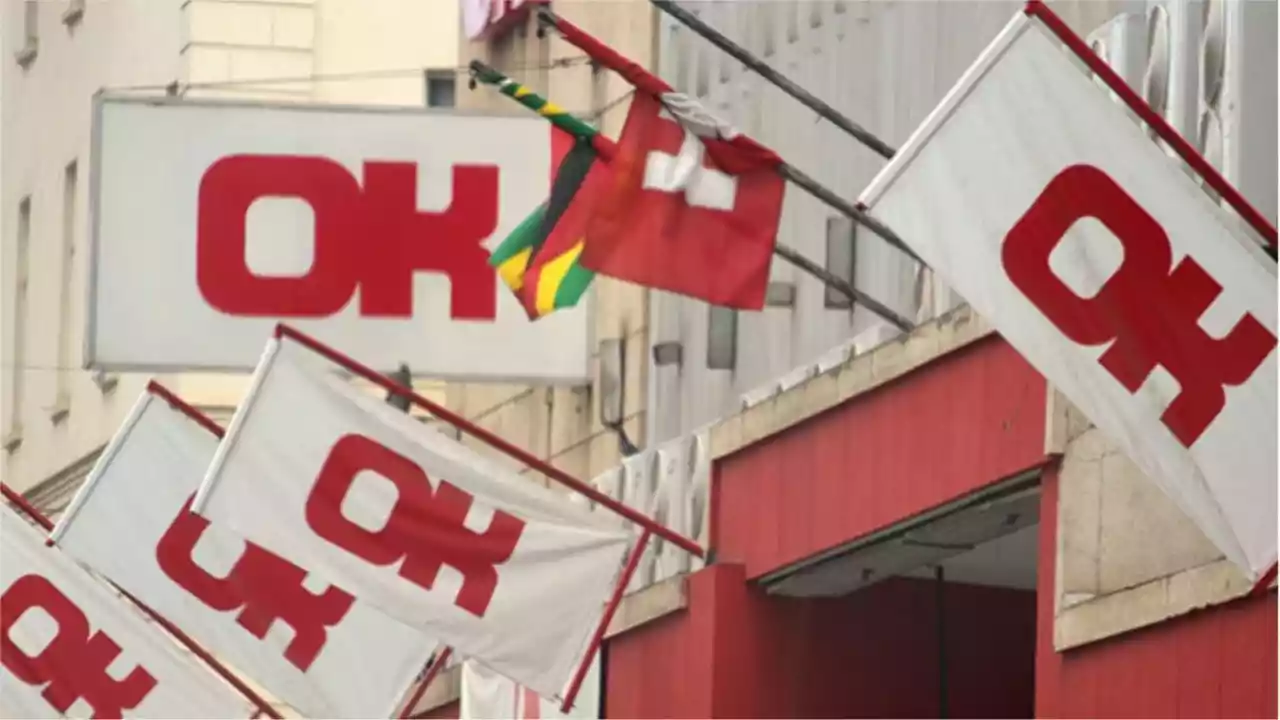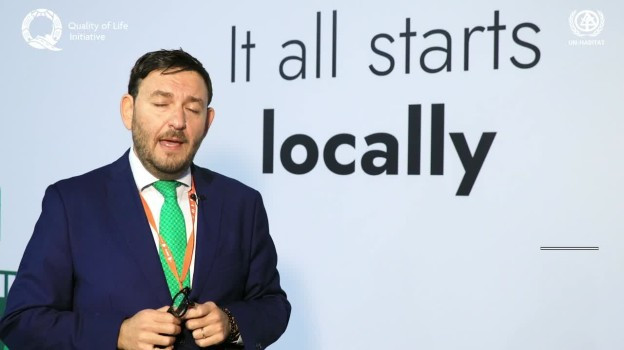
IN Africa, imports of pharmaceutical products range around a huge 70-90% of the continent's total consumption of medical products.
This means that the local manufacturing of pharmaceutical products is very negligible. Zimbabwe, in particular, manufactures around US$32 million (or only 13%) of its drugs domestically, whilst it imports US$240 million (or 87%) of pharmaceuticals, each year, according to available reports.
Regions with comparable populations to Africa (of 1,4 billion people) such as China and India, for example, import only 5% and 20% of their medical requirements, respectively. In terms of vaccines, the African continent is even more dependent on foreign production, as 99% of its requirements are imported. That means the immunisation for acute diseases, such as cholera, Covid-19 measles, polio, Ebola, etc, can only be provided by foreign manufacturers.
This also means that sub-Saharan Africa cannot sustain itself independent of pharmaceutical imports. This dependency turned out into a major disaster, during the peak of the Covid-19 pandemic. At the height of covid, countries, which are major producers of pharmaceutical products, began to effect export bans, in order to ensure that their locally-made medicines would serve their own citizens, firstly.
As a result, Africa was among the last regions to receive the Covid-19 vaccines and some of its countries also paid much more than Europe and the rest of the developed world (advanced economies) for the vaccines. For example, it was eventually discovered that South Africa, paid 15% and over 100% more than the European Union, for the Johnson & Johnson and Oxford AstraZeneca covid vaccines, respectively.
This also implies that it is quite probable that millions of deaths on the continent (due to Covid-19) would have been avoided if there were expertise and capacity to produce covid-relevant medicines, including vaccines. A recent resurgence of cholera in many parts of Africa (including Zimbabwe) has also highlighted the need to have more African vaccine producers. Currently, only one firm in the world — South Korea’s EuBiologics —makes cheap (affordable) and effective vaccine doses for the deadly disease (cholera). With such developments, it is essential for Zimbabwe and the rest of the continent to embark on an initiative towards pharmaceutical sovereignty (independence).
This will be crucial in order to ensure that there is health security for the citizens. The ability to manufacture medicines, including vaccines will protect against disastrous effects of future global-level pandemics (widespread diseases). The world is also increasingly declining into global geopolitical tensions, which could result in disruptions to Africa's pharmaceutical supply chains.
That means, in the worst case, without pharmaceutical independence, it is possible that medicines for critical conditions such as HIV, tuberculosis, malaria and other crucial vaccines, may be cut off due to global tensions, including wars. Storms caused by climate change, heatwaves and other emergencies can also not be ruled out (ignored). If the disruptions were to happen, Africa's population would be at risk, with some disastrous consequences to bear for that.
- Open letter to President Mnangagwa
- Feature: ‘It’s worse right now than under Mugabe’: Sikhala pays the price of opposition in solitary cell
- Masvingo turns down fire tender deal
- Human-wildlife conflict drive African wild dogs to extinction
Keep Reading
That is why it is essential to for the continent to develop expertise and capacity in the pharmaceutical sector, as a matter of urgency.
How to get there
The first step towards continental independence should ideally start as a select group of nations choose to collaborate. As an initial move, Zimbabwean health authorities may approach health officials from South Africa, Nigeria, Kenya, Ethiopia and possibly Ghana, with the intention to coordinate their purchases of key medicines such as those for; maternal health, infants, malaria, HIV, tuberculosis, diabetes, general pain relief, etc.
The collaboration in purchases would enable the mentioned countries to negotiate for lower prices, as they interact with their global suppliers. The huge purchasing power behind the large orders can afford the African countries more power in their purchasing processes, unlike before, when some African countries end up buying expensive medicines because they lack alternatives and sufficient purchasing power.
The second stage in the mission towards independence would require that the mentioned African countries permit the largest producers in their nations to consolidate (collaborate). This would entail mergers and acquisitions whereby, the largest pharmaceutical manufacturers from those countries would merge and also buy up the smaller firms in their industries.
In Zimbabwe's case, this would imply CAPS holdings, Varichem, Datlabs and other large manufacturers, combining forces (merging) and also buying up smaller local manufacturers. The result of this would be larger local production runs and lower costs of production. Currently, most countries which have manufacturing capabilities on the continent, are simply formulating (combining) imported pharmaceutical ingredients, for their final products.
This means that most African manufacturers cannot manufacture medicines from scratch. They largely import key ingredients, also known as Active Pharmaceutical Ingredients (APIs), from foreign companies based in India, China, United States of America (USA), Europe, etc.
There are currently only three companies on the continent - two in South Africa and one in Ghana, which can manufacture APIs. In order to facilitate the capacity to produce medicines from scratch (including APIs), the aforementioned African countries will then need to coordinate their industries so that there is cross-border collaboration among manufacturers from the different nations.The focus should start with the manufacturing of a few key drugs, instead of rushing towards manufacturing all kinds of medicines.
Each country in the cross-border collaboration can also be requested to focus on only one part of the supply chain. That means, South Africa's producers may be assigned to focus exclusively (only) on API production, whilst Zimbabwe focuses on research in advancing the effectiveness of the key drugs, then Nigeria focuses on formulating (combining) the APIs sourced from South Africa as it makes the final products. Kenya would then focus on marketing the manufactured products (pharmaceuticals) throughout Africa, Ghana would focus on creating global markets (buyers) beyond Africa, whilst Ethiopia would focus on the development of vaccines (Covid-19, cholera, measles, HPV, Polio, etc).
In all this, the mentioned African countries would also provide a ready market for their pharmaceutical products through the demand from their public healthcare facilities. The huge populations of the aforementioned countries, which exceeds 500 million, would provide a lucrative market for the products.
Pharmaceuticals can be extremely expensive to manufacture, especially on a small-scale. A 2019 McKinsey report on the state on Africa's pharmaceutical industries, for example, found that a production-run for basic oral solids (tablets), would need to manufacture at least 500 million tablets at a time, for it to be globally competitive. Anything smaller than that, would result in the producer's costs and final price being uncompetitive (expensive).
Cross-border collaboration of African manufacturers would, therefore, help to make the large production runs possible.
The African nations should also strive to get accreditation or pre- qualification from the World Health Organisation (WHO). This would enable their final products to be sold globally and to be preferred by large global purchasers such as the United Children’s Fund (Unicef), the “Global Fund to Fight Aids, Tuberculosis and Malaria” and the “US President’s Emergency Plan for Aids Relief (PEPFAR)”, etc.
Currently, of the only 375 manufacturers of drugs in Africa, only three can make APIs, only six are pre-qualified by WHO, whilst up to 100 firms (of the 375) claim to be manufacturers, when, instead, they simply repackage imported syrups, pills and other medications. In contrasts, as of 2019, China and India had approximately, 5 000 and 10 500 drug manufacturers, respectively.
Funding
In order to raise funds for the large-scale production processes, the consolidated (merged) domestic companies can use their own resources. They can also request for capital from other private investors or even banks. Since their enterprises would likely be profitable, funders are likely to be available to financially support their endeavours.
The governments of the collaborating African countries can also provide capital in exchange for equity (shareholding), in the manufacturing companies. Government funding may also be provided as a grant (for free), especially if the funding which is required is not significant.
The recently established African Pharmaceutical Technology Foundation (APTF), which is based in Rwanda can also assist in coordinating the capital (financial) requirements of this endeavour. Approved by the African Development Bank in 2022, the APTF serves to promote the manufacturing of pharmaceuticals and advances in medical research in Africa, as an independent entity.
It has excellent working relationships with the African Development Bank, European Investment Bank, World Health Organisation, the African Union, World Trade Organisation, etc.
Thus, from its networks, the APTF can mobilise lending (credit), which may be essential for establishing the continent's pharmaceutical ambitions. Initiatives such as the African Vaccine Manufacturing Accelerator (AVMA), which was announced by the Global Alliance For Vaccines and Immunisation (GAVI), in June 2024, can also provide finance for the advancement of local production.
As of June, 2024, AVMA had secured around US$1 billion in pledges from donors across the world, who are ready to support the continent's progress, specifically in the manufacturing of vaccines. Among the top donors to AVMVA, are the USA, Canada, United Kingdom, Japan, the Gates Foundation and Europe.
AVMA will reimburse up to US$25 million for each African manufacturer of priority vaccines (such as cholera and Ebola), which can get approval by World Health Organisation (WHO) (also known as pre-qualification).
For producers that can manufacture vaccines from scratch, AVMA will provide up to US$250 million in grants (free cash) and loans combined, as a means to accelerate their progress. Africa itself, having a yearly demand for vaccines of US$1 billion, would provide an immediate market for locally manufactured products.
Advantages of independence
If the African countries can produce some key drugs at a lower price, they would benefit from affordable medications. Health security on the continent would also be assured. This means that, any disruptions to global supply chains of medicines, would not detrimentally affect Africa.
The collaboration among the countries would also provide a sufficient talent pool of highly specialised skills, which are essential to the pharmaceutical industry. It would not have been possible for an individual African country to supply an adequate pipeline (number) of the required talent needed, in order to manufacture significant pharmaceutical products, from scratch.
The specialists who will be nurtured in the new African pharmaceutical industries can also provide their expertise for developing other industries and economic sectors on the continent.
Their skills would be essential in the advancement of locally produced hydrogen, fertilisers, biofuels, synthetic (human made) fuels, fertilisers, food chemicals, water treatment chemicals, cosmetic products, etc.
Amidst all this, jobs will be created and the economies of the collaborating African countries would grow. Developing African capabilities would also result in a decline in the use of counterfeit and illegal pharmaceutical products.
Fake pharmaceutical products are not uncommon in Africa, as their suppliers usually take advantage of the unavailability of rightly-priced (affordable) medicines.
With meticulous strategies, the collaborative effort can result in a higher level of African pharmaceutical independence. If thoroughly pursued, it seems possible that this can be achieved within the next 20 years.
- Tutani is a political economy analyst- tutanikevin@gmail.com










